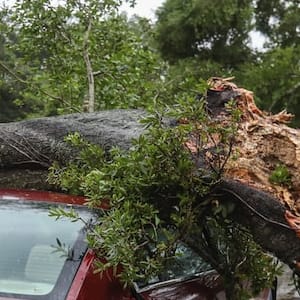all to smash: Idiom Meaning and Origin
What does ‘all to smash’ mean?
The idiom "all to smash" means to completely destroy or ruin something. It suggests a severe or catastrophic level of damage or loss.

Idiom Explorer
The idiom "smash up" means to completely destroy or wreck something with force or impact. It is often used to describe a situation where something is damaged beyond repair or in a state of chaos.
The idiom "knock the stuffing out of" means to greatly weaken or defeat someone or something, typically through a powerful physical or emotional blow or shock.
The idiom "knock down" means to forcefully bring someone or something to the ground. It can also refer to reducing the price or value of something significantly.
The idiom "go for broke" means to take a great risk or make a bold, all-out effort in pursuit of a goal, regardless of the potential consequences or failure.
The idiom "go down the pan" means to fail or deteriorate significantly.
The idiom "go all the way" means to fully commit or complete a task or action without hesitation or reservation.
The idiom "go all out" means to put in maximum effort or to do something with full dedication and enthusiasm.
The idiom "for all one is worth" means to do something with all of one's ability or effort, often in a desperate or determined manner.
The idiom "fall apart" means to lose control or fail dramatically. It is often used to describe a situation or person that is experiencing a sudden and complete breakdown.
The Breakdown
The idiom "all to smash" is believed to derive from the Old English word "smeaxan," which means "to crush" or "to smash." This etymological connection adds depth to the understanding of the idiom's meaning, as it reinforces the idea of complete destruction. The term "all," in this context, intensifies the notion of something being utterly broken or ruined.
When used in a sentence, the idiom "all to smash" typically modifies a noun, reflecting the total devastation or collapse of that noun. For example, one might say "The storm caused the house to be all to smash," emphasizing the extent of the destruction. This usage reveals the idiom's ability to convey a strong sense of despair or calamity.
The idiom "all to smash" is an interesting phrase that has its origins in 18th century British English. It is used to emphasize the complete destruction or ruin of something. Although there is limited information available about this specific phrase, a thorough analysis can shed light on its meaning and usage.
One fact that is known about the idiom is that it is primarily used in British English. It is not commonly used in American English, which suggests that it may have originated in Britain and remained relatively confined to that region. Additionally, it is worth noting that this idiom is considered somewhat old-fashioned and is not widely used in contemporary language.
The idiom "smash up" is closely related to "all to smash" as it also conveys the idea of destruction. While "all to smash" emphasizes complete ruin or destruction, "smash up" focuses on the act of breaking or shattering something. Both idioms share a common theme of physical damage or destruction.
An example sentence that incorporates both idioms might read: "The reckless driver smashed up the car, leaving it all to smash." In this sentence, "smashed up" highlights the act of breaking or damaging the car, while "all to smash" emphasizes the extent of the resulting destruction.
Another related idiom to consider is "all hell breaks loose." Although not directly connected to "all to smash," this idiom also conveys a sense of chaos or calamity. It signifies the eruption of disorder or turmoil in a given situation.
An example sentence that incorporates both idioms might be: "The protesters stormed the government building, and all hell broke loose. The interior was left all to smash." In this example, "all hell broke loose" conveys the sudden outburst of chaos, while "all to smash" describes the resulting state of destruction within the building.
The idiom "all over with" is another idiom that can be linked to "all to smash." It shares a sense of finality or conclusion. When something is "all over with," it suggests that a particular situation or event has come to an end, often with negative implications.
Consider the following sentence: "After the company's financial scandal, it was all over with their reputation. Their credibility was left all to smash." Here, "all over with" indicates the end of the company's reputation, while "all to smash" emphasizes the extent to which their credibility has been thoroughly ruined.
Lastly, the idiom "crush it" can also be related to "all to smash." While "all to smash" conveys destruction or ruin, "crush it" carries a more positive connotation. To "crush it" means to succeed or excel in a given endeavor, often with great force or intensity.
An example sentence incorporating both idioms might be: "The team's hard work and dedication allowed them to crush it in the championship game. Their opponents were left all to smash." In this sentence, "crush it" signifies the team's success, while "all to smash" describes the defeated state of their opponents.
The idiom "all to smash" originated in 18th century British English and is used to emphasize complete destruction or ruin. It is primarily used in British English, and although limited information is available about its specific usage, analysis of its etymology and context reveals its unique and powerful meaning. Related idioms such as "smash up," "all hell breaks loose," "all over with," and "crush it" share common themes of destruction, chaos, and success, further enhancing our understanding of "all to smash."
Example usage
Examples of how the idiom "all to smash" can be used in a sentence:
- After the storm, the house was in complete ruins - the furniture was all to smash.
- She dropped the glass on the floor and it shattered all to smash.
- The car crashed into the wall, causing the front end to crumple all to smash.
More "Verbs" idioms



